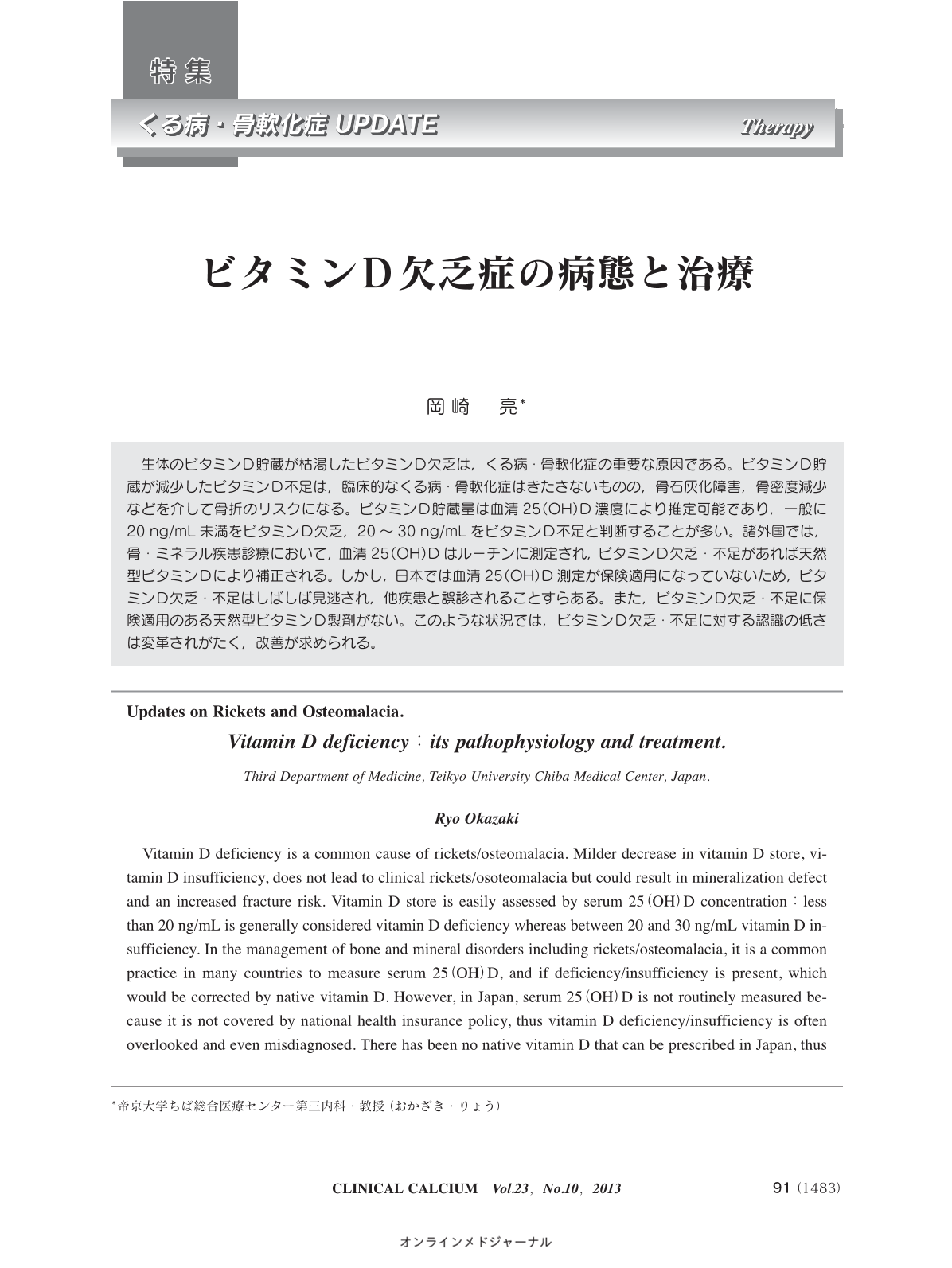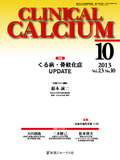Japanese
English
- 有料閲覧
- Abstract 文献概要
- 1ページ目 Look Inside
- 参考文献 Reference
生体のビタミンD貯蔵が枯渇したビタミンD欠乏は,くる病・骨軟化症の重要な原因である。ビタミンD貯蔵が減少したビタミンD不足は,臨床的なくる病・骨軟化症はきたさないものの,骨石灰化障害,骨密度減少などを介して骨折のリスクになる。ビタミンD貯蔵量は血清25(OH)D濃度により推定可能であり,一般に20 ng/mL未満をビタミンD欠乏,20~30 ng/mLをビタミンD不足と判断することが多い。諸外国では,骨・ミネラル疾患診療において,血清25(OH)Dはルーチンに測定され,ビタミンD欠乏・不足があれば天然型ビタミンDにより補正される。しかし,日本では血清25(OH)D測定が保険適用になっていないため,ビタミンD欠乏・不足はしばしば見逃され,他疾患と誤診されることすらある。また,ビタミンD欠乏・不足に保険適用のある天然型ビタミンD製剤がない。このような状況では,ビタミンD欠乏・不足に対する認識の低さは変革されがたく,改善が求められる。
Vitamin D deficiency is a common cause of rickets/osteomalacia. Milder decrease in vitamin D store, vitamin D insufficiency, does not lead to clinical rickets/osoteomalacia but could result in mineralization defect and an increased fracture risk. Vitamin D store is easily assessed by serum 25(OH)D concentration:less than 20 ng/mL is generally considered vitamin D deficiency whereas between 20 and 30 ng/mL vitamin D insufficiency. In the management of bone and mineral disorders including rickets/osteomalacia, it is a common practice in many countries to measure serum 25(OH)D, and if deficiency/insufficiency is present, which would be corrected by native vitamin D. However, in Japan, serum 25(OH)D is not routinely measured because it is not covered by national health insurance policy, thus vitamin D deficiency/insufficiency is often overlooked and even misdiagnosed. There has been no native vitamin D that can be prescribed in Japan, thus patients with vitamin D deficiency/insufficiency have been prescribed active instead of native vitamin D. These circumstances must be changed to increase the awareness of vitamin D deficiency/insufficiency.



